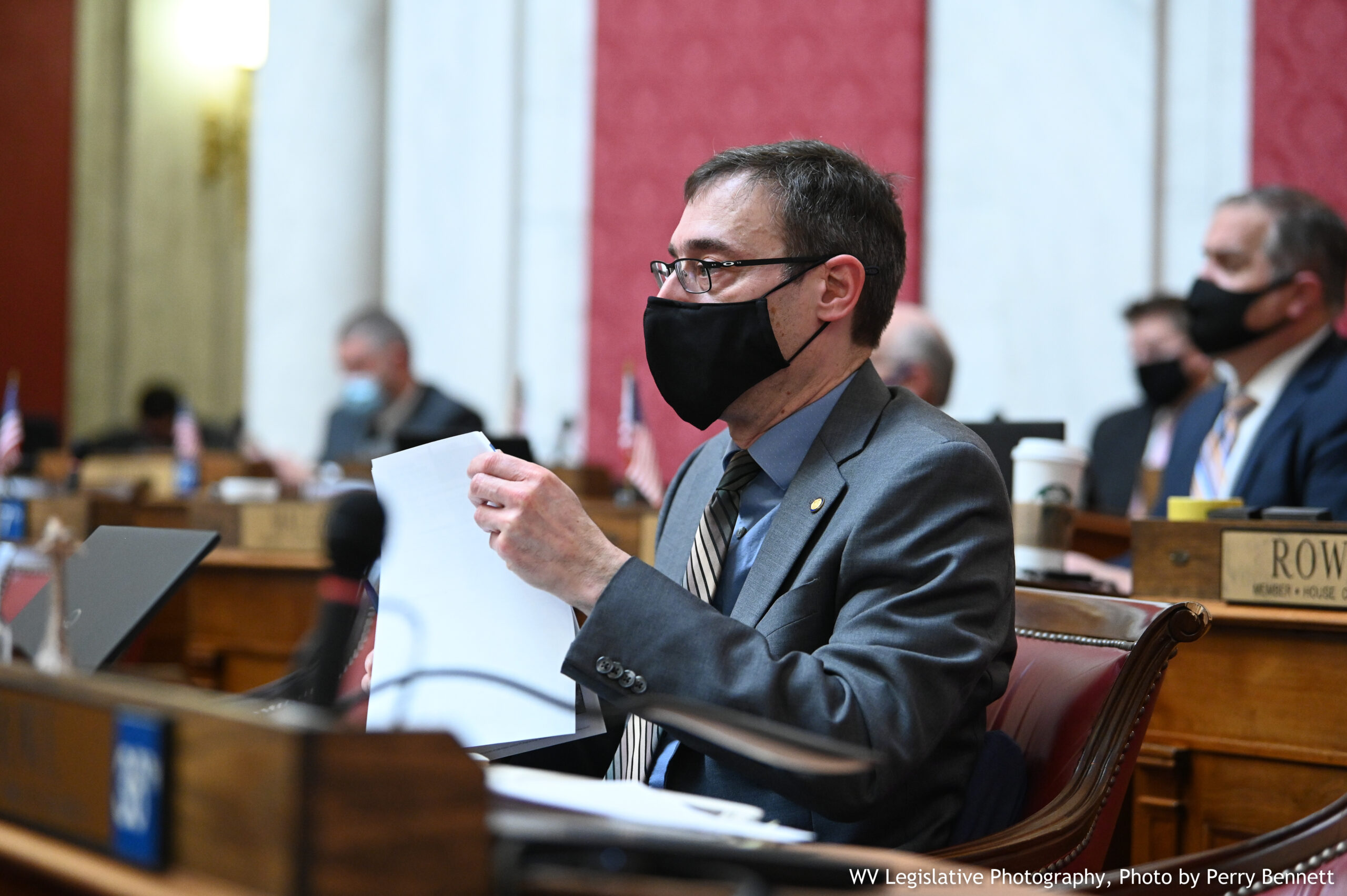MORGANTOWN – Every legislative session there are one or two prominent bills that pit the interests of industry against the environmental community.
HB 2598 is one of those. It was before the House Energy and Manufacturing Committee Tuesday.
It seeks to once again modify the 2014 above-ground storage tank (AST) legislation that followed the Freedom Industries chemical spill that contaminated the water supply for about 300,000 people in the Kanawha River Valley. Subsequent 2015 legislation reduced the number of tanks regulated.
This bill is aimed at excluding small tanks that hold wastewater and other chemicals from old conventional vertical oil and gas wells.
It would specifically exempt tanks having a capacity of 210 barrels (8,820 gallons) or less, containing brine water or other fluids produced in connection with oil and gas production activities within a zone of critical concern. A zone of critical concern is defined as five hours or less upstream of a drinking water intake.
Industry lobbyist Phil Reale told committee members that prices are at a 30-year low and the conventional wells in question are often losing money relative to costs. The production companies are paying thousands of dollars to comply with AST and other state regulations.
Much of the discussion focused on tank inspections and what the loss of this layer of oversight might mean. Reale said these tanks undergo 40-45 annual inspections from a variety of sources and would continue to be inpsected. “It’s not like these aren’t being looked at.”
Commitee counsel added that if these tanks aren’t exempted, producers may either have to plug their marginal wells or face going out of business.
Delegate Brent Boggs, D-Braxton, said that in his area, residents who receive free gas or at least have access to gas through marginal vertical wells operated by small producers fear that legislation like this could force them to lose heat and cooking fuel supply.
Delegate Evan Hansen, D-Monongalia, played a significant advisory role in shaping the 2014 legislation (he was first elected to office in 2018) and called a number of witnesses to testify about the possible harm of exempting the tanks.
Ruth Porter, with the Department of Environmental Protection’s Above-ground Storage Tank Program, said the bill would exempt about 887 tanks across the state. Since 2016, when inspections started, violations of the AST regulations have been significant but have been decreasing under program supervision. Releases into stream also have decreased and haven’t affected water supplies.
Dorothy Vesper, a WVU geology professor and geochemist, talked about the types of contaminants held in these tanks. Along with water they will hold crude oil (which the prodcuers will draw off and sell) and brines.
Brines doesn’t just mean salt water, she said. The water also contains bariun and radium and volatile BTEX compounds: benzene, toluene, ethylbenzene and xylene, which occur naturally in crude oil and natural gas deposits. BTEX levels are monitored and regulated for drinking water safety.
Delegate Mark Zatezalo, R-Hancock, is a bill co-sponsor and a hydrogeologist by profession. He said he was trying to gauge through the discussion the level of impact taking these tanks out of the AST program might have, and was encouraged to hear that what spills there have been have been contained and not affected any water supplies.
Hansen motioned unsuccessfully to have the bill referenced to Health after passing Energy.
He said, “It’s about inspections and its about maintenance of these tanks. What I’m hearing is that the [AST] system is working.” He pointed out the the Morgantown Utility Board opposes the bill and so far is the only major water utility in the state to do so.
The bill passed in a divided voice vote and goes to the full House.
Tweet David Beard@dbeardtdp Email dbeard@dominionpost.com




